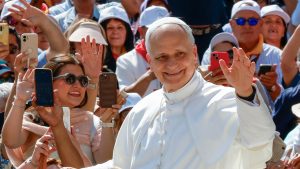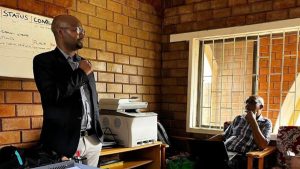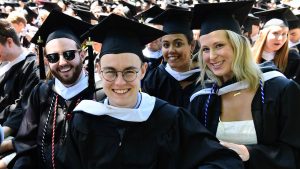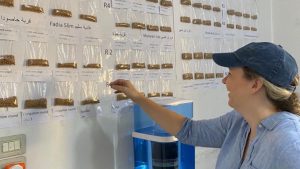Faculty of Arts and Sciences
The Faculty of Arts and Sciences is the heart of Fordham students’ liberal arts and sciences education in the Jesuit Catholic tradition. With over 1,200 full-time and part-time faculty members, the Faculty is organized into twenty departments and a wide range of interdisciplinary programs. We provide a Core curriculum to all undergraduate students, and we support dozens of academic majors, minors, and graduate programs across Fordham’s various colleges and schools, including Fordham College at Rose Hill, Fordham College at Lincoln Center, the Graduate School of Arts and Sciences, the School of Professional and Continuing Studies, and the Gabelli School of Business. Our faculty are leaders in research who regularly make significant scholarly contributions and advancements in their professional fields. Our faculty are also deeply engaged in global and national networks, as well as in the local New York City community.
Learn about the many exciting things our A&S faculty are doing, and about how the Office of the Vice Dean for Faculty Affairs (VDFAS) supports the faculty, promoting excellence in pedagogy and scholarship, or contact us directly at [email protected].
Research Spotlight

Ralph Vacca’s, Ph.D., Assistant Professor of Communication and Media Studies, recently received a major grant from the National Science Foundation (NSF) to fund the project, "Critical Data Stories: Co-Designing Remixing Tools with Teachers to Support Critical Data Literacy with Middle School Youth." Learn more about this project as well as other outstanding research our faculty are completing.
Teaching Spotlight

The program “Visions of the Good in the Bronx,” which is meant to help underserved students in the borough, began last summer at Fordham from a $300,000 grant. Read how the program is continuing this summer with Lauren Kopajtic, Ph.D., Assistant Professor of Philosophy, and Nicholas Smyth, Ph.D., Assistant Professor of Philosophy, and as Stephen Grimm, Ph.D., Professor of Philosophy, shares his experience from last year. Learn more about this and other faculty pedagogy initiatives.
Department & Program News
Learn more about a new bi-campus interdisciplinary Asian American Studies Minor that will begin next fall, along with a new Biochemistry Major that will make its debut at both FCRH and FCLC. Learn more about other exciting department and program news.












